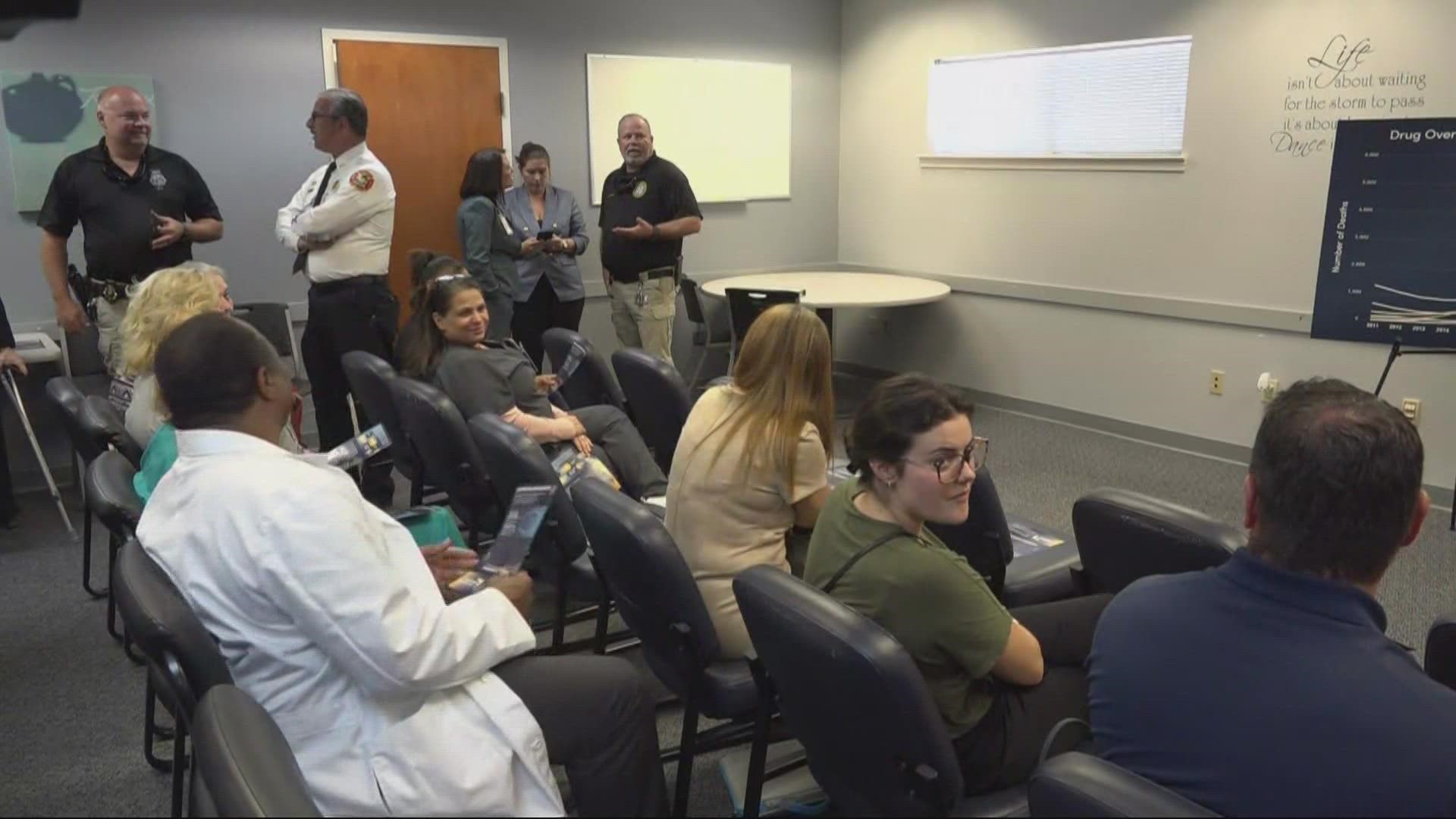MIDDLEBURG, Fla. — Two years ago, Tammy Bugely said no more to drugs. It was her eighth overdose that changer her life forever.
“My daughter is actually the one who found me because I was in the bathroom for about 15 minutes," said Bugely. "I was all blue, I got pictures, and my mom has videos. The fact that my mother and daughter saw me at that stage that just hurts."
Bugely says the help she received saved her life, which is why she supports new pilot programs like coordinated opioid recovery network
Public health officials say CORE expands every aspect of overdose response.
Helping break the cycle of addiction and making sure patients are stabilized but also offering treatment for coexisting medical and mental health conditions.
“When you look at that system the trauma system, we’ve mimicked that a few time for other deadly diseases," said Dr. Kenneth Scheppke, Florida Deputy Secretary for Health. "We did it for heart attacks, strokes, and now were doing it for substance use disorder. Every single time we copy that system of car we saw a drop in the death rates."
Scheppke says opioid addiction is a disease that can’t be fixed overnight.
“There are a lot of misconceptions about the disease and that somehow a patient can choose not to have this disease" said Scheppke. "Do you think a person with diabetes could choose not to have diabetes or someone with high blood pressure can choose not to have high blood pressure this a lifelong disease?"
The program is being rolled out in 12 counties first, including Clay. The second phase will include Duval and Flagler.

